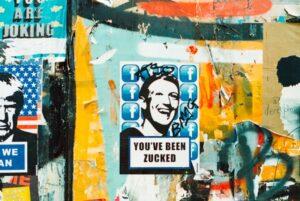 I was invited to speak to writing instructors at the University of Minnesota, Duluth, who are in the process of thinking through the information literacy portion of their learning outcomes. Always a pleasure to connect with a discipline that seems so closely aligned with academic library work.
I was invited to speak to writing instructors at the University of Minnesota, Duluth, who are in the process of thinking through the information literacy portion of their learning outcomes. Always a pleasure to connect with a discipline that seems so closely aligned with academic library work.
Abstract: For more than three decades, my job was to help students learn how information works. Though information literacy, as we call it, matters to me because inquiry is ideally a form of education that Paolo Freire called “the practice of freedom,” the students I worked with were understandably focused on formulating questions and selecting the kinds of sources that would satisfy their teacher rather than engaging in genuine curiosity. Tellingly, a Project Information Literacy study of recent college graduates found less than a third felt that college prepared them to ask questions of their own. Librarians and writing instructors both face a fundamental tension between our higher goals and the reality of our service roles to other disciplines. Two concepts that seem important but are too often overlooked are first, understanding the underlying ethical moves and commitments that characterize good honest work, whether it’s science, journalism, or an informative TikTok, and second, understanding how information systems shape our experiences, especially now that we no longer simply seek information, it seeks us. Today we’ll explore ways these concepts could be addressed without losing sight of the practical needs of writing instructors and their students to satisfy disciplinary expectations. Continue reading “information literacy, writing instruction, and the problem of stochastic parrots”



 This is a talk I prepared for
This is a talk I prepared for
 It’s here! You Are Here: A Field Guide for Navigating Polarized Speech, Conspiracy Theories, and Our Polluted Media Landscape by Whitney Phillips and Ryan M. Milner has been published this week (MIT Press, March 2) and it’s wonderful. Throughout the book, the authors use the natural world and the threats it faces as a metaphor for the network “pollution” that we all experience, pollution that hardens polarization, distributes misinformation, and knows no borders. This metaphor allows the authors to focus on how polluted information spreads and what to do about it rather than examining motives or assigning political blame; it also points to the unequal social burden of this pollution, similar to environmental racism. Polluted information is nothing new, but in recent years we’ve built a network system that amplifies and spreads it with great efficiency. This polluted environment (one the US is particularly responsible for building) is one that is interconnected and one we all share, so it requires a communal effort to restore it to health. You’re here. I’m here. What we do affects us all. The authors write:
It’s here! You Are Here: A Field Guide for Navigating Polarized Speech, Conspiracy Theories, and Our Polluted Media Landscape by Whitney Phillips and Ryan M. Milner has been published this week (MIT Press, March 2) and it’s wonderful. Throughout the book, the authors use the natural world and the threats it faces as a metaphor for the network “pollution” that we all experience, pollution that hardens polarization, distributes misinformation, and knows no borders. This metaphor allows the authors to focus on how polluted information spreads and what to do about it rather than examining motives or assigning political blame; it also points to the unequal social burden of this pollution, similar to environmental racism. Polluted information is nothing new, but in recent years we’ve built a network system that amplifies and spreads it with great efficiency. This polluted environment (one the US is particularly responsible for building) is one that is interconnected and one we all share, so it requires a communal effort to restore it to health. You’re here. I’m here. What we do affects us all. The authors write: One of the stickiest issues we face is how to fix the internet so it isn’t a democracy-threatening amplifier of disinformation and a tool to incite racist, fascist hate and violence. It’s an old problem. While John Perry Barlow’s
One of the stickiest issues we face is how to fix the internet so it isn’t a democracy-threatening amplifier of disinformation and a tool to incite racist, fascist hate and violence. It’s an old problem. While John Perry Barlow’s 